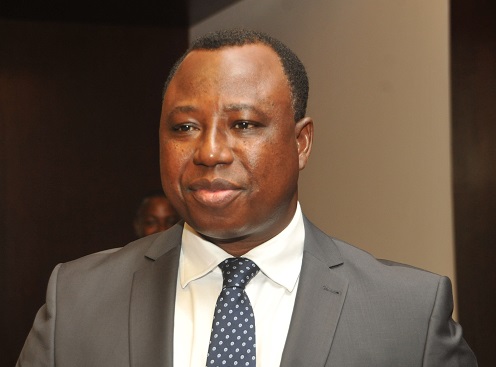
Social protection interventions must be child-sensitive - CHRAJ proposes on World Day Against Child Labour
The Commission on Human Rights and Administrative Justice (CHRAJ) has called on the government to improve and expand its social protection systems to be more child-sensitive.
The commission has consequently suggested the introduction of child transfers, including grants.
Advertisement
In a statement signed by its chairman, Joseph Whittal, commemorating the World Day Against Child Labour yesterday, CHRAJ said this would help to improve the household incomes of the vulnerable and to prevent the likelihood of pushing children into hazardous work conditions.
The commission also advised the government to implement Target 1.3 of the United Nations (UN) Sustainable Development Goal 1, which called on all member countries to end poverty and called for the implementation of nationally appropriate social protection systems and measures for all with substantial coverage of the poor and the vulnerable.
The commission further entreated the government to implement relevant recommendations of the Universal Periodic Review as Ghana prepared to submit its national report to the Human Rights Council in October this year for the fourth cycle review.
The Day
World Day Against Child Labour is observed on June 12, and dedicated to creating awareness of the menace of child labour and human trafficking, with this year’s commemoration dubbed: “Universal Social Protection to End Child Labour”.
According to the UN, more than 160 million children, some as young as five, are engaged in child labour across the world.
According to ILO data, referenced in the CHRAJ statement, in least developed countries, more than one in every four children of ages five to 17 were engaged in labour that was considered detrimental to their health and development.
It said while the percentage of children involved in child labour was higher in low-income countries, the numbers were greater in middle-income countries.
Ghana
“Specifically in Ghana, there is an average of 21 per cent of children, aged five to 17 years, involved in child labour, with 14 per cent engaged in hazardous forms of labour,” the statement said.
CHRAJ said the country, meanwhile, was a signatory to the United Nations Convention on the Rights of the Child, African Charter on the Rights and Welfare of the Child, ILO Convention on Minimum Age, among other relevant international charters.
“Nationally, Ghana has an extensive legal and policy framework to ensure the protection of children. The 1992 Constitution protects the rights of children against any work that threatens their development. In addition, there is the Children's Act, 1998 (Act 560), the Human Trafficking Act, 2005 (Act 694), the Domestic Violence Act, 2007 (Act 732), the Criminal Code, 1960 (Act 29) and the Criminal Code (Amendment) Act, 1998 (Act 554),” it said.
It said CHRAJ also noted the country’s comprehensive social protection framework such as the Social Protection Policy with its flagship programmes, including Livelihoods Empowerment against Poverty (LEAP), the Labour-Intensive Public Works (LIPW), the School Feeding Programme (SFP), the National Health Insurance (NHIS) Exemptions and the Basic Education Capitation Grants.



